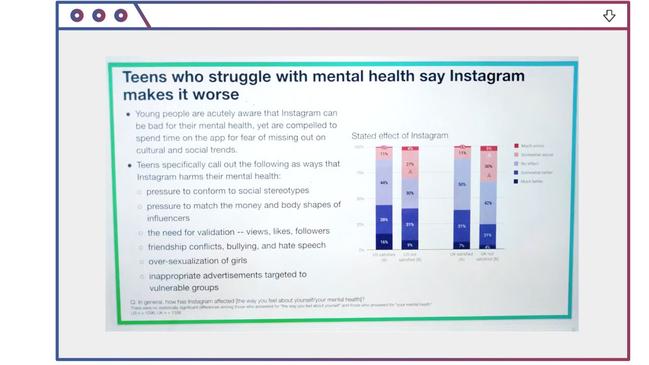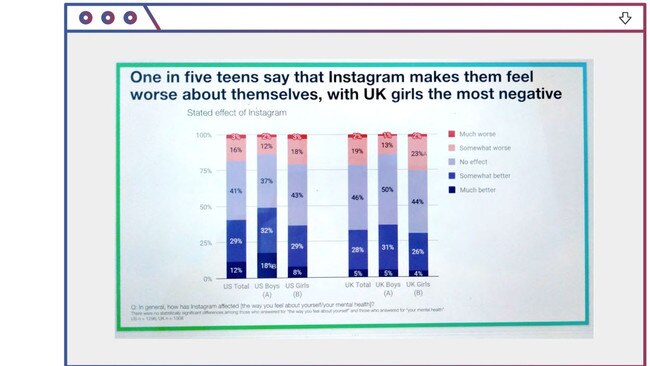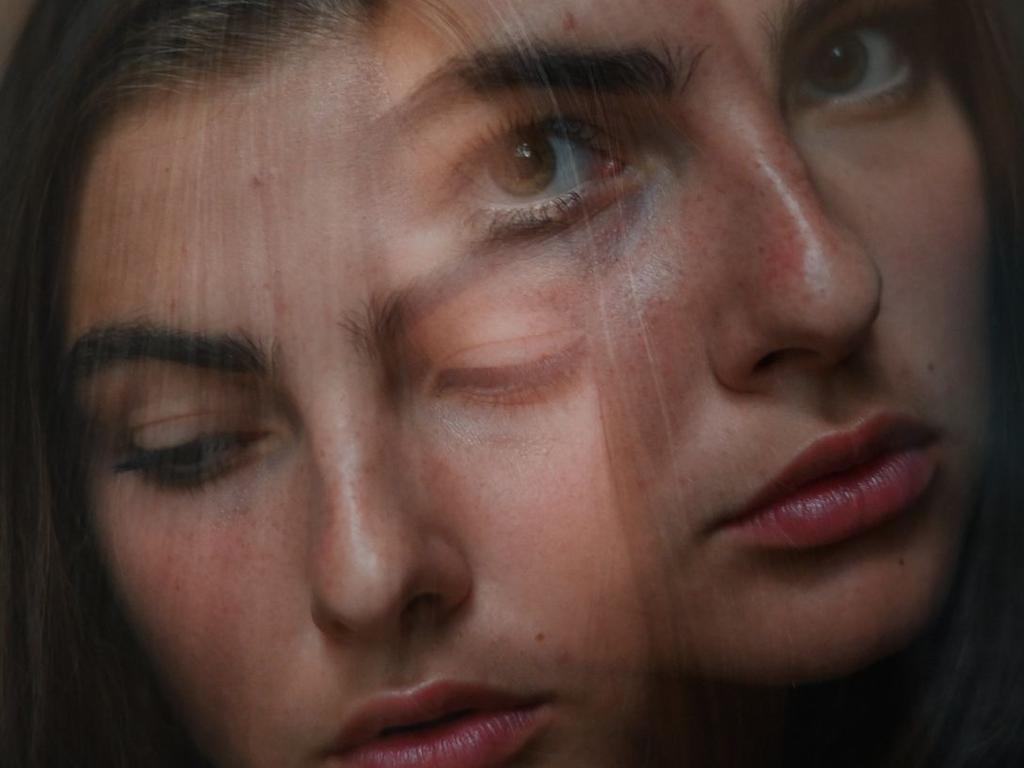Instagram promises change for the better amid concerns over body image issues
Facebook has known the harmful effects of its Instagram platform on the mental health of teenage girls for at least two years, conducting research even as it downplayed the impact.

Facebook has known the harmful effects of its Instagram platform on the mental health of teenage girls for at least two years, conducting research on the topic even as it downplayed the impact.
Those studies, conducted since 2019 and shared with top executives, found Instagram exacerbated feelings of anxiety, depression and body image issues.
The findings, first published by The Wall Street Journal on Wednesday, noted that 13 per cent of teenagers in Britain who reported suicidal thoughts linked those to their use of Instagram.
“Teens told us that they don’t like the amount of time they spend on the app but feel like they have to be present,” one manager warned, according to the documents obtained by the Journal.
“They often feel ‘addicted’ and know that what they’re seeing is bad for their mental health but feel unable to stop themselves.”
One slide from a presentation in 2019 concluded: “We make body image issues worse for one in three teen girls”.

Jasmine Fardouly studies the impact of social media on body image at Macquarie University’s Centre for Emotional Health.
She says Facebook should be more transparent about what research the company is conducting – and the findings that work is delivering about mental health
“Facebook and Instagram do a lot of internal research, and no one really knows that they do and what they find,” Dr Fardouly said. “It certainly would be very helpful to release those findings and to be transparent about the research they’re conducting.”
The relationship between Instagram and body-image issues was complex, she said.
“Body-image concerns have always been prevalent, but there may be ways that Instagram, as an image-based platform, can enhance these concerns,” Dr Fardouly said.
“Some research suggests that spending time on Instagram can have a small impact on body image. Others say viewing idealised and edited images can be harmful when users seek out that type of content based on pre-existing thoughts and experiences.”
For Imogen Barnes, 21, social media is neither good nor bad.
She started an Instagram account at age 17 to chronicle her recovery from anorexia, after deciding there were few positive influences on social media.
Her account has nearly 50,000 followers.
“I didn’t feel like there was any positive influence out there … that showed you can use recovery to step into who you are,” she said.

“The overall impact I suppose it has on an individual’s self-esteem and self-worth and mental health depends upon their context and the context in which they’re viewing it personally,” she said. “I have worked to really curate my feed so that I am seeing a diverse range of ethnicities, races and body types. Different people and different opinions. “
Facebook made changes to Instagram in May, as criticism about the impact of the platform on younger users mounted. The changes, known as Project Daisy, hid the number of “likes” on user posts. But documents obtained by the Journal show the research found this did not lead to a significant improvement.
“We didn’t observe movements in overall wellbeing measures,” read one presentation to Facebook chief executive Mark Zuckerberg.
Despite this, another Facebook executive reportedly wrote: “A Daisy launch would be received by press and parents as a strong positive indication that Instagram cares about its users, especially when taken alongside other press-positive launches.”
Louise La Sala, a youth suicide prevention researcher for Orygen, a mental health service for teenagers, said it was typical for young people to compare themselves with others.
“What we are finding is that images have a lot more power than text,” she said. “So viewing images, or sharing photos seems to have a different impact on young people compared to viewing text-based communication.
An Instagram spokeswoman said the platform did take the research “seriously” and had set up “a specific effort to respond”.

If you, or anyone you know is experiencing an eating disorder or body image concerns, you can call the Butterfly Foundation National Helpline on 1800 33 4673, e-mail support@butterfly.org.au or chat online via www.butterfly.org.au






To join the conversation, please log in. Don't have an account? Register
Join the conversation, you are commenting as Logout